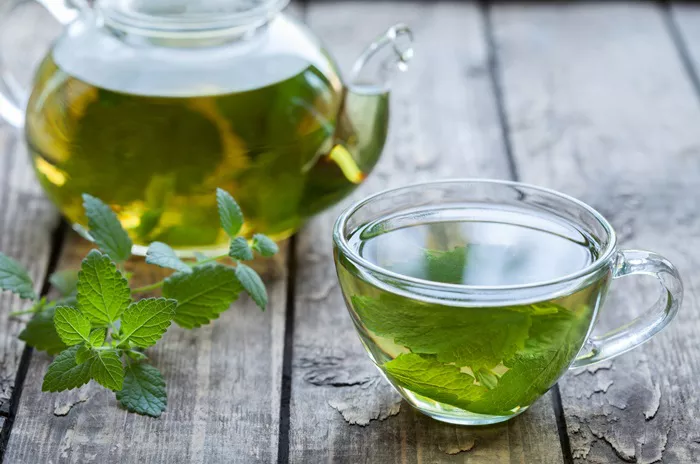Peppermint tea is a popular herbal beverage known for its refreshing taste and potential health benefits. However, for breastfeeding mothers, concerns may arise regarding its safety and potential effects on lactation and the baby’s health. This article explores the safety of consuming peppermint tea while breastfeeding, addressing common questions and providing evidence-based insights to help mothers make informed choices.
Understanding Peppermint Tea
Peppermint tea is made from the leaves of the peppermint plant (Mentha piperita). It is often consumed for its soothing properties and pleasant flavor. The tea is typically brewed by steeping peppermint leaves in hot water, releasing its characteristic minty aroma and taste.
Nutritional Composition
Peppermint tea is generally low in calories and does not contain significant amounts of macronutrients like carbohydrates, proteins, or fats. Its primary appeal lies in its potential health-promoting phytochemicals, including menthol, menthone, and various flavonoids.
SEE ALSO: Does Junk Food Affect Breast Milk?
Safety Considerations for Breastfeeding Mothers
Impact on Milk Supply:
One concern among breastfeeding mothers is whether peppermint tea can decrease milk supply. While peppermint is believed to have mild anti-galactagogue effects (substances that reduce milk production), the evidence supporting this effect in humans is limited and mostly anecdotal. Most studies suggesting a decrease in milk supply involve concentrated forms of peppermint rather than moderate consumption of peppermint tea.
Transfer to Breast Milk:
Peppermint compounds can transfer into breast milk, but typically in very small amounts. The concentration is generally considered safe for infants, although individual responses can vary. Most experts suggest that moderate consumption of peppermint tea is unlikely to harm breastfed infants.
Potential Allergic Reactions:
Some individuals may be allergic to peppermint or its components. If a breastfeeding mother or her infant has a known allergy to mint or related plants, caution should be exercised, and consumption of peppermint tea should be avoided until consulting with a healthcare provider.
Benefits of Peppermint Tea
Despite safety considerations, peppermint tea offers potential health benefits that can be advantageous for breastfeeding mothers:
Digestive Aid:
Peppermint is well-known for its ability to relieve digestive discomforts such as bloating, gas, and indigestion.
Hydration:
Like other herbal teas, peppermint tea contributes to daily fluid intake, which is crucial for breastfeeding mothers to maintain hydration levels.
Relaxation:
The soothing aroma and taste of peppermint tea can provide relaxation and stress relief, which may indirectly benefit lactation.
Guidelines for Safe Consumption
To enjoy peppermint tea safely while breastfeeding, consider the following guidelines:
Moderation:
Consume peppermint tea in moderation. One to two cups per day is generally considered safe for most breastfeeding mothers.
Timing:
To minimize potential effects on milk supply, avoid consuming large quantities of peppermint tea just before breastfeeding or pumping sessions.
Observation:
Monitor your baby for any unusual reactions, although adverse effects are rare with moderate consumption.
Conclusion
Peppermint tea can be enjoyed safely by breastfeeding mothers when consumed in moderation. Its potential benefits, such as digestive aid and relaxation, can be advantageous during the postpartum period. However, if you have concerns about peppermint tea’s effects on your milk supply or your baby’s health, consulting with a healthcare provider can provide personalized guidance based on your individual circumstances.
By understanding the safety considerations and potential benefits of peppermint tea, breastfeeding mothers can make informed decisions that support their well-being and lactation goals.
FAQs
Will peppermint tea affect my breast milk?
Peppermint tea can potentially decrease milk supply in some individuals. It contains compounds like menthol, which may interfere with lactation by relaxing the muscles in the mammary glands and reducing milk production. However, the effect can vary among individuals. It’s advisable to consume peppermint tea in moderation if you notice any decrease in milk supply.
What teas should you avoid while breastfeeding?
While breastfeeding, it’s generally recommended to avoid teas that contain certain herbs or ingredients that can affect milk supply or transfer potentially harmful substances to the baby through breast milk. Teas to avoid include:
Sage tea: Known to decrease milk supply.
Parsley tea: Can reduce milk production.
Peppermint tea: May reduce milk supply in some women.
Black and green teas: Safe in moderation due to caffeine content, but excessive intake can lead to dehydration.
It’s best to consult with a healthcare provider if you’re unsure about specific teas.
Does peppermint dry milk supply?
Yes, peppermint has been reported to potentially decrease milk supply due to its menthol content, which can have a drying effect on mammary gland tissue. However, not all women experience a significant decrease, and the impact can vary. If you enjoy peppermint tea and notice a decrease in milk supply, consider reducing consumption or opting for other breastfeeding-safe teas.
What tea is good for breastfeeding?
Several herbal teas are considered safe and beneficial for breastfeeding mothers:
Fennel tea: Known to support milk production and help with digestion.
Chamomile tea: Can help with relaxation and sleep, promoting overall well-being.
Rooibos tea: Naturally caffeine-free and rich in antioxidants.
Nettle tea: Contains essential nutrients like iron and supports overall health.
These teas are generally safe when consumed in moderation. Always check with your healthcare provider if you have any concerns about specific teas or their effects on breastfeeding.


